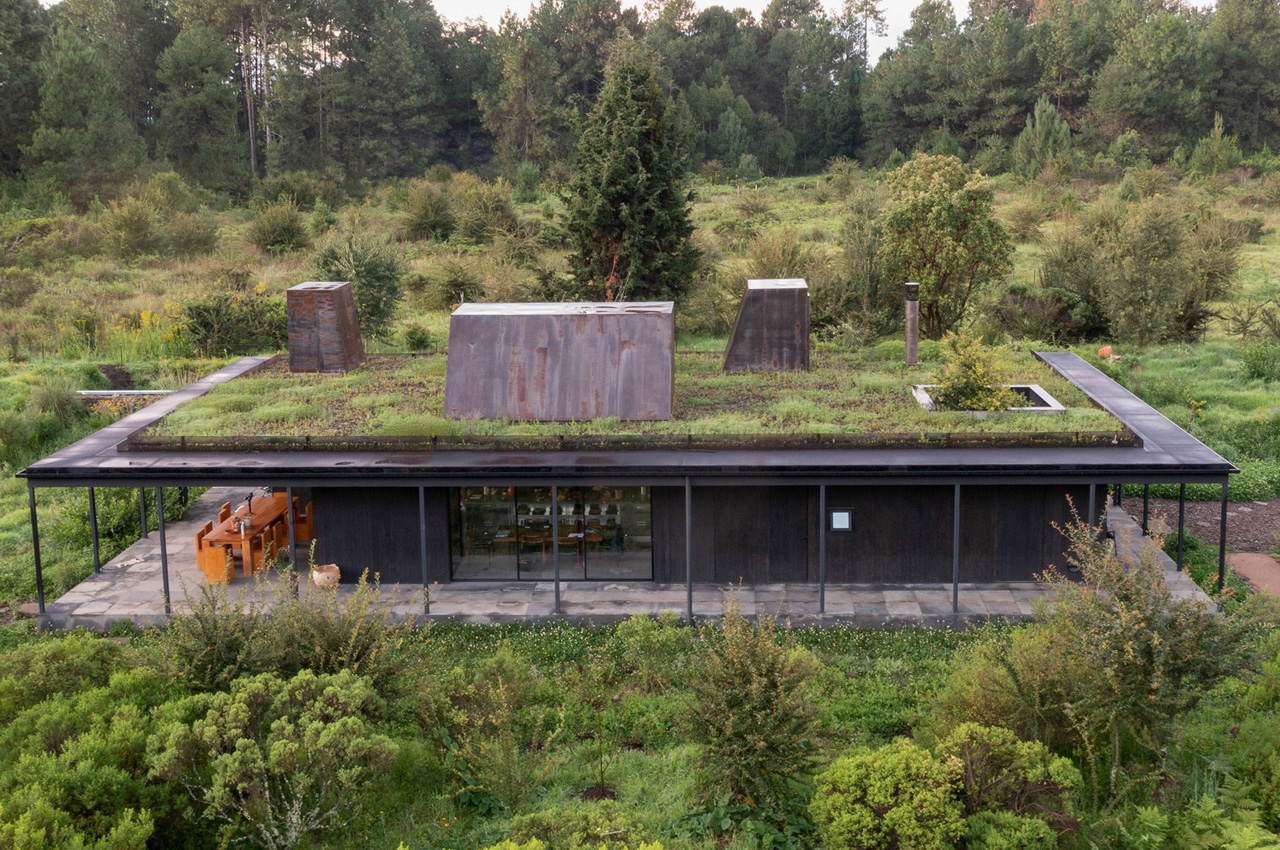
Designed by Robert Hutchison Architecture and Javier Sanchez Arquitectos, the Rain Harvest Home, or Casa Cosecha de Lluvia is nestled in the rural town of Temascaltepec, which lies about 140 kilometers west of Mexico City. The family nature retreat features an extensive system for capturing and reusing rainwater!
Designer: Robert Hutchison Architecture and Javier Sanchez Arquitectos
Located in the mountains of Mexico, the Rain Harvest Home was designed for the founder of Javier Sanchez Arquitectos and his family, who plan to make this their permanent residence in the near future. It includes the main house, an art studio, and a bathhouse. Bio-agriculture gardens, an orchard, and a network of pathways were the various landscaping elements included in the home. The team said that permaculture principles were used to “establish a holistic, integrated relationship between people and place”. Now what is permaculture? It is a portmanteau of permanent agriculture and permanent culture and is an approach to design and land management that is inspired by natural ecosystems.
All of the structures in the properties were designed to capture and reuse rainwater and ensure that they are mindful of natural resources, especially water. “Here, as in the surrounding region of Central Mexico, water has become an increasingly precious resource as temperatures rise and populations increase,” the team said. “Rain Harvest Home takes a different tack, proposing an integrated approach to designing regeneratively with water,” they continued. It occupies 1200 square feet and can be used all year round. It has a generous amount of covered outdoor space and stunning views of the surrounding landscape on all sides.
The three structures were designed specifically to capture rainwater. Bioswales in the landscape ensure that water is directed to the property above, and below-ground reservoirs have been installed where water is captured and purified. “The on-site water treatment system is completely self-contained and primarily gravity-fed, containing five cisterns that provide potable and treated water,” the team said. “A chemical-free, blackwater treatment system treats all wastewater on-site, returning it to the site’s water cycle as greywater for use in toilets, and to irrigate the on-site orchard,” the team concluded.